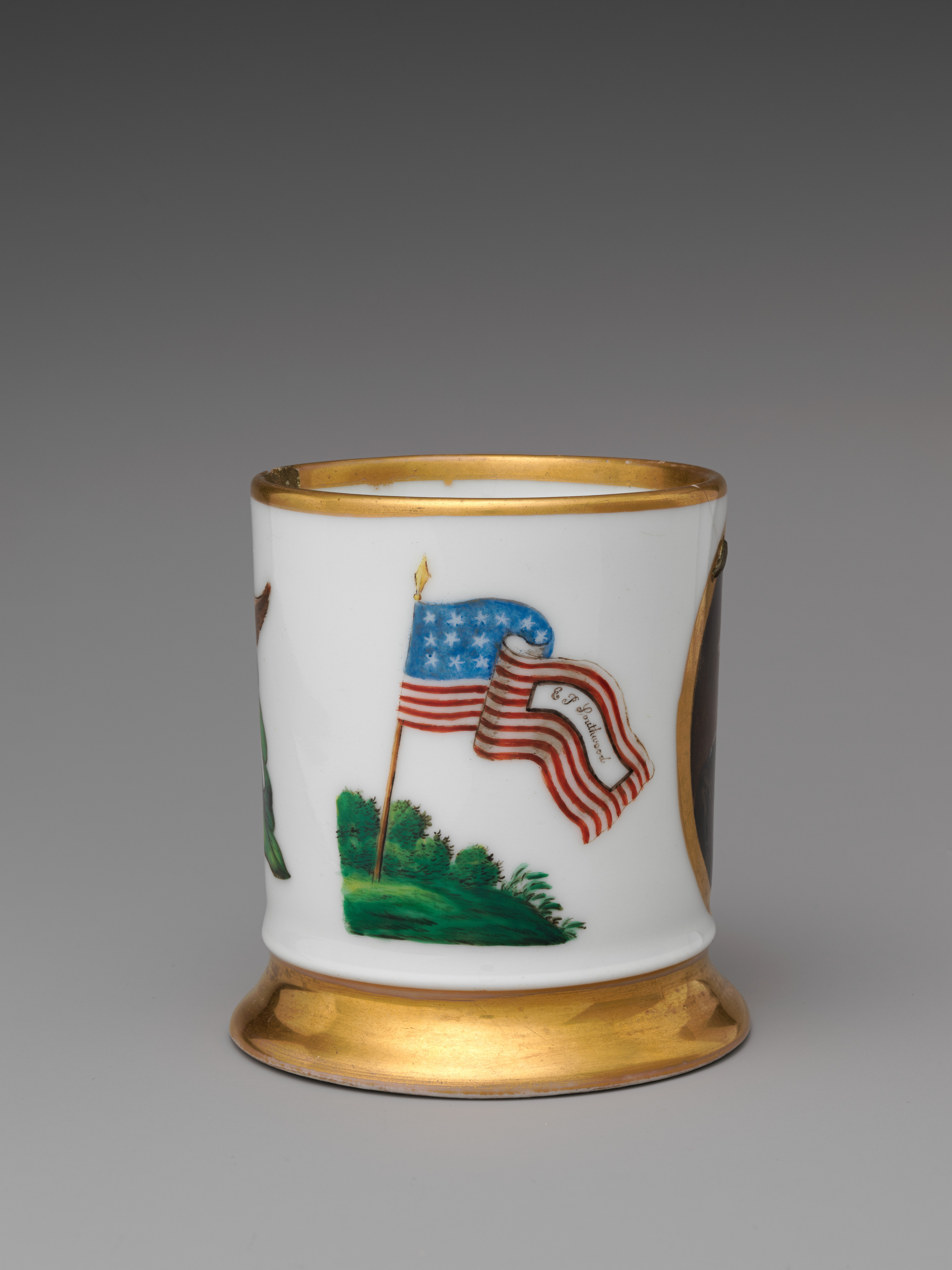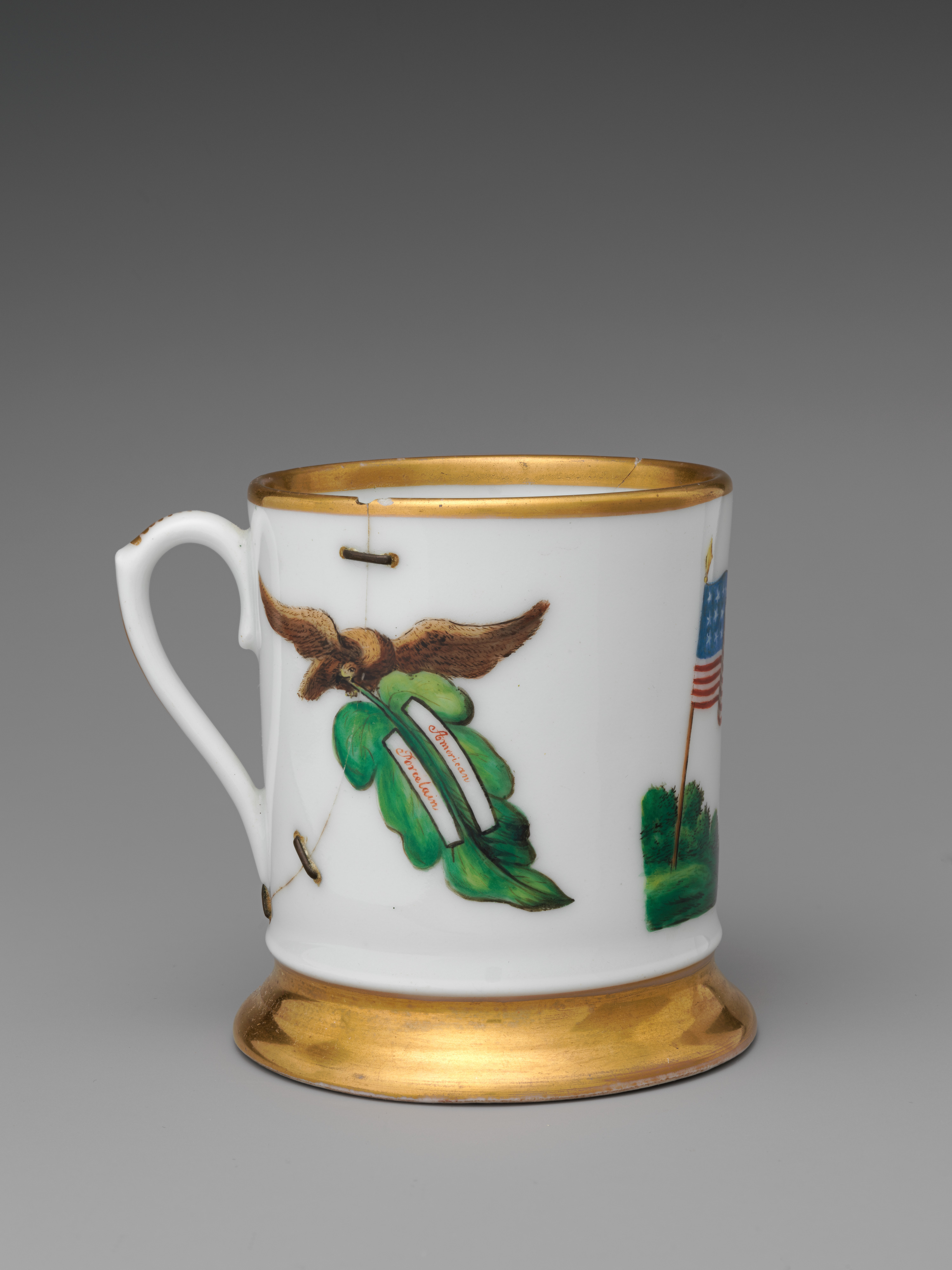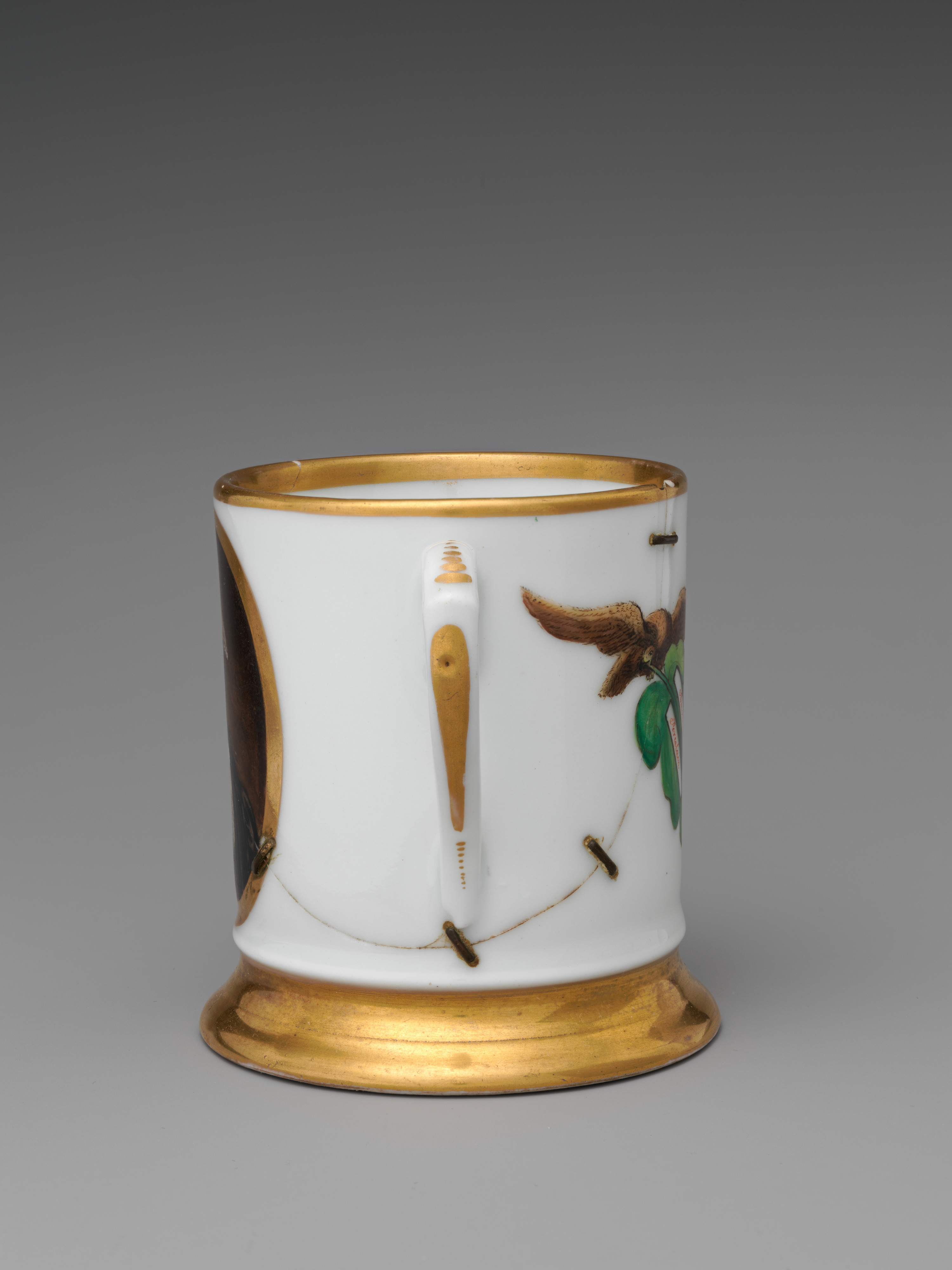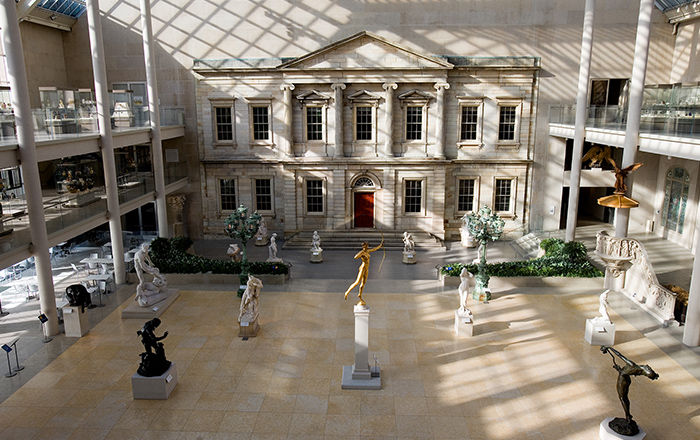Mug
Possibly Tucker Factory American
This is a rare early example of American porcelain that features such nationalistic motifs as a miniature portrait of George Washington, and eagle, and a flag flying from a staff in a landscape. Although there were several short-lived porcelain factories dating to the second quarter of the 18th century—all in operation for only a few years—it was not until the mid-1820s that the porcelain industry gained traction, with enterprises founded by various entrepreneurs working in Philadelphia and New York. It is likely that the mug was produced by one of those firms. The inscription in the banner held by the eagle’s beak, "American Porcelain," in combination with the patriotic motifs suggests that this may have been made to exhibit the success of one of those early factories. The Museum exhibits significant examples from the Philadelphia firm of William Ellis Tucker, and of the New York firm, DeCasse and Chanou. The name "E. P. Southwood" is inscribed in a reserve on the flag, and might identify one of investors in one of these early porcelain ventures.
Due to rights restrictions, this image cannot be enlarged, viewed at full screen, or downloaded.
This artwork is meant to be viewed from right to left. Scroll left to view more.





